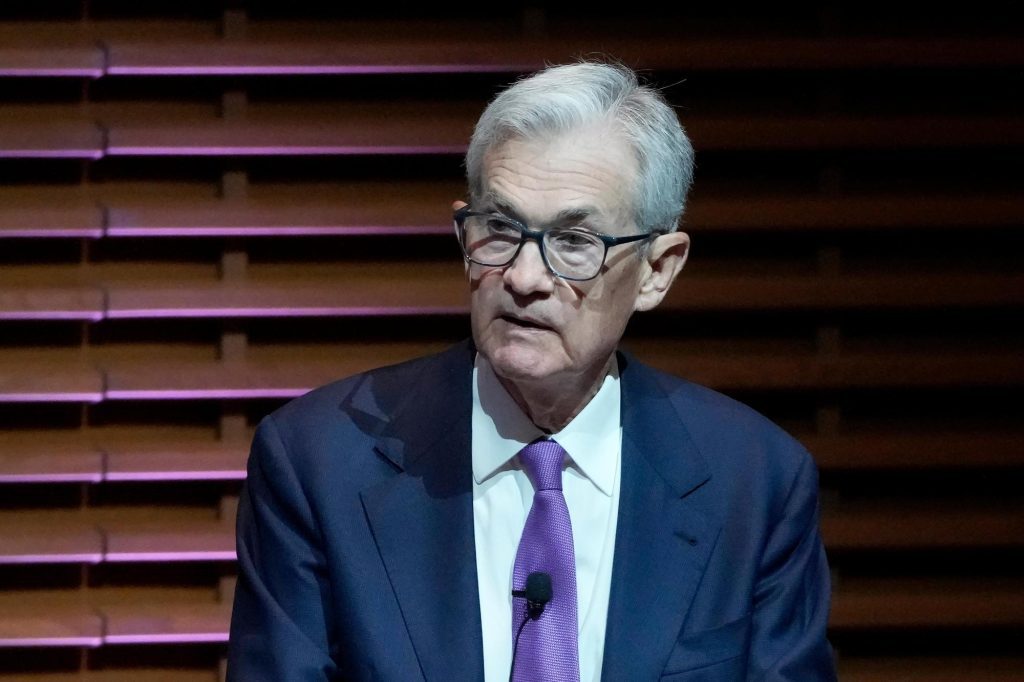By CHRISTOPHER RUGABER (AP Economics Writer)
Federal Reserve officials are expected to lower their main interest rate later this year, as per Chair Jerome Powell's announcement on Wednesday. This is despite recent indications of a robust U.S. economy and a rise in U.S. inflation during January and February.
“The recent data do not … materially change the overall picture,” Powell said during a speech at Stanford University, “which continues to be one of solid growth, a strong but rebalancing labor market, and inflation moving down toward 2% on a sometimes bumpy path.”
He also mentioned that most Fed officials believe it is likely for them to commence lowering their main rate at some point this year.
During his speech, Powell also aimed to dismiss any suggestion that the Federal Reserve’s interest-rate determinations might be influenced by the presidential election campaign this year. The Fed will convene to decide on rate cuts during the peak of the campaign, in July and September.
Even though inflation has considerably decreased from its peak, it remains higher than the Fed’s 2% target. Additionally, average prices are still significantly higher than they were before the pandemic, which is a cause of concern for many Americans and could potentially pose a threat to President Joe Biden’s re-election efforts.
The recent small uptick in inflation has led some economists to delay their forecasts for when the Fed will start reducing rates. The rate cuts would reverse the 11 increases implemented by the Fed since March 2022, during the worst inflation surge in four decades. Over time, this would likely lead to reduced borrowing rates for households and businesses.
Many economists now anticipate that the central bank’s initial rate reduction will not occur until July or even later. This anticipation has sparked speculation on Wall Street that the Fed might ultimately decide to postpone rate cuts until after the presidential election. The Fed’s November meeting is scheduled for Nov. 6-7, immediately after Election Day.
Former President Donald Trump has criticized Powell for being “political” in considering rate cuts that Trump claims could benefit Biden and other Democrats. Powell was initially nominated as Fed chair by Trump, who has expressed his intention to replace Powell if he is elected president, following the conclusion of Powell's term in 2026.
In his speech on Wednesday, Powell highlighted that Congress intended for the Fed to be entirely independent of politics, with officials serving lengthy terms that do not coincide with elections.
“This independence,” Powell remarked, “enables and requires us to make our monetary policy decisions without considering short-term political matters.”
The remarks made by the Fed chair come after several reports indicating that the economy remains robust, primarily due to strong consumer spending. However, this strength could make it challenging for the Fed to achieve its objective of slowing inflation to its 2% target. Annual inflation increased to 2.5% in February, based on the central bank's preferred measure, although this was a significant drop from its peak of 7.1%.
When they met two weeks ago, officials from the Fed predicted they could decrease their main rate three times this year. However, almost half of the 19 policymakers expected only two or fewer rate cuts.
Solid economic growth might make it less likely for the Fed to lower the rate later this year for two reasons. First, consistent hiring and strong consumer spending can cause companies to raise prices and worsen inflation.
Another reason is that a strong economy reduces the necessity for the Fed to reduce rates, which usually boosts growth. Normally, the central bank lowers its main rate when growth falters and companies start reducing jobs. Powell and other officials have emphasized that as long as the economy remains strong, they have time to evaluate the path of inflation and ensure it’s moving back down to their 2% target.
Last week, a government report showed that consumer spending increased rapidly in February, and prices rose faster than is consistent with the Fed’s inflation target for the second consecutive month.
“Regarding inflation, it's too early to tell whether the recent readings reflect more than just a temporary increase,” Powell said. “Considering the strength of the economy and progress on inflation so far, we have time to let the new data guide our decisions on policy.”
In statements this week, some other Fed officials restated their expectations for three quarter-point rate cuts this year, while also highlighting that such cuts would depend on inflation slowing from the January and February readings.
“I believe three is still reasonable, but it’s a close decision,” Loretta Mester, president of the Federal Reserve’s Cleveland branch, told reporters Tuesday.
Nonetheless, Raphael Bostic, president of the Atlanta Fed, said earlier Wednesday on CNBC that he anticipates only one interest rate cut this year, probably in the final three months of the year.
Daly and Bostic are among the 12 policymakers with a vote on the central bank’s interest rate decisions this year.









